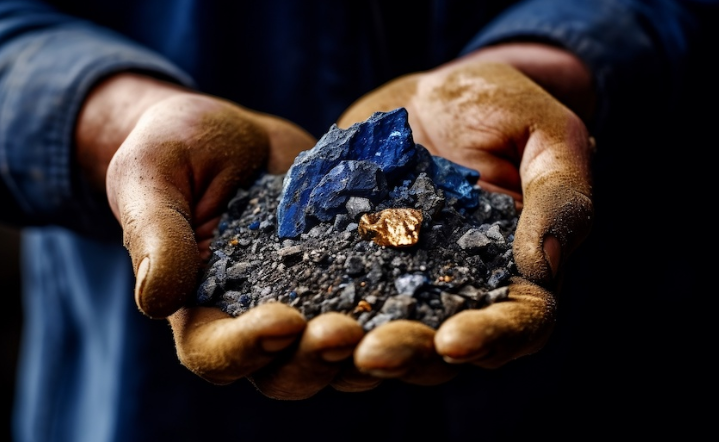Allegations of "Blood Minerals" against Apple from DRC Surface: A Closer Look at the Issue (GS Paper 2, IR)

Introduction: The Accusations and Their Implications
- In a recent development, the Democratic Republic of Congo (DRC) has accused tech giant Apple of sourcing minerals from the country's war-torn eastern region, alleging the use of "blood minerals" in its products.
- Lawyers representing the DRC government have sent a letter to Apple's CEO Tim Cook, claiming that the company purchases minerals illegally transported from the DRC to Rwanda, where their origins are obscured before entering the global technology supply chain.
- The DRC government has threatened legal action if Apple continues this practice.
The Context: Conflict Minerals and the Troubled Eastern Region
- The eastern region of the DRC, known for its tantalum, tin, tungsten, and gold mines (referred to collectively as 3T or 3TG), has been a hotspot for violence and conflict for decades. The situation escalated in late 2021 when rebels from the March 23 Movement (M23) began reclaiming territory, intensifying the struggle over mineral resources. Rwanda has faced accusations from the DRC, the United Nations, and Western nations of supporting rebel groups like M23 to gain control over the region's abundant mineral wealth.
- The presence of approximately 120 armed groups in the eastern DRC further complicates the situation, with many benefiting from the mining and trade of minerals to varying extents.
The Allegations and Apple's Response: Examining the Claims
- The allegations against Apple are detailed in a 53-page report by Amsterdam & Partners, the law firm representing the DRC government.
- Titled "Blood Minerals: Everyone sees the massacres in Eastern Congo, but everyone is silent," the report claims that Apple's supply chains are opaque and tainted by the suffering of the Congolese people.
- Apple, however, has refuted these claims, citing its 2023 annual corporate report, which asserts that due diligence efforts found no evidence of direct or indirect financing of armed groups in the DRC or adjacent countries.
Understanding the Democratic Republic of Congo: Riches, Struggles, and Challenges
- The Democratic Republic of Congo (DRC) is a vast country located in central Africa, renowned for its abundant mineral resources and tumultuous history.
- Despite its resource wealth, the DRC faces numerous challenges, including political instability, armed conflicts, and human rights abuses.
- Key facts about the DRC include its status as the second-largest country in Africa by area and the 11th largest globally.
- Additionally, it boasts the second-largest rainforest in the world after the Amazon.
- The country gained independence from Belgium in 1960 and is rich in natural resources such as cobalt, copper, diamonds, gold, and other minerals crucial for modern technology.
- However, despite its resource wealth, the DRC remains one of the poorest nations globally, characterized by high poverty rates and a low human development index.
Regulatory Landscape: The Dodd-Frank Act and Corporate Responsibility
- The Dodd-Frank Act of 2010 mandates U.S. companies to disclose their use of conflict minerals and ensure that their supply chains do not contribute to human rights abuses in the DRC and neighboring countries.
- This legislation underscores the importance of corporate responsibility and transparency in global supply chains, particularly concerning conflict-affected regions like the DRC.


